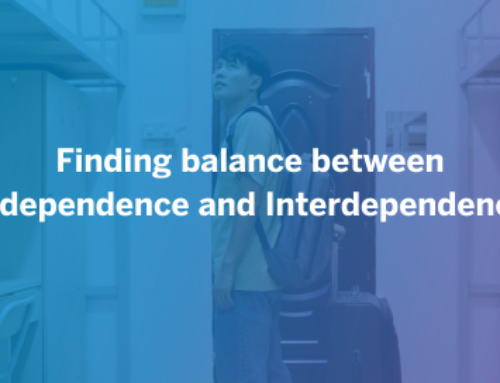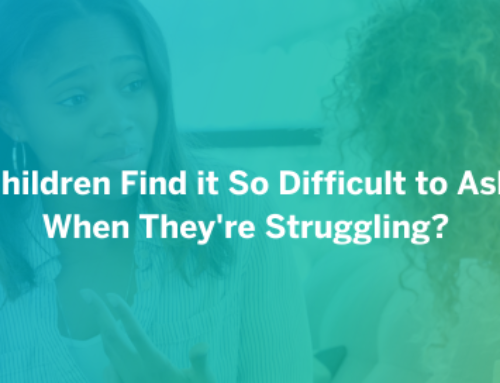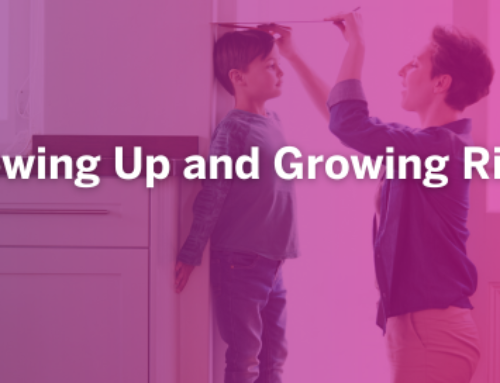
Once upon a time, we held our babies in our arms and fed them when they couldn’t feed themselves. Then they grew, and we held their little hands as we encouraged them to take their first steps. Then they grew, and we read them bedtime stories and packed their lunch boxes with love notes. And then they grew, and we cheered for them on the sidelines as they made their goals and performed their plays. Then they grew, and they got taller and curvier than us, and their voices deepened. And then they grew, and their hands no longer reached for ours as they walked towards their friends. And then we paused. We looked at ourselves in the mirror and realized our roles had changed. And Then WE grew. The choice was ours we could either grow more connected to our teens or further apart.
Staying connected to our kids involves two distinct feelings, vulnerability, and courage. According to American research professor, lecturer, author, and podcast host, Brené Brown, “There is no courage without vulnerability.” The bad news is that vulnerability is hard, really hard. The good news is that courage and vulnerability have been at the forefront of all those years we’ve experienced parenting our children. Our children have taught us how to navigate these feelings since day one. When we had to slowly loosen the reigns and give them the space they needed to walk those first steps, it took holding our breaths, desperately pretending we weren’t scared to death, as they stumbled and got back up again and again. The strength it took us to encourage them to get back up and try again is the same today as when they were babies.
The difference now lies in the dangers they face as teenagers. Instead of worrying about their scraped knees and elbows, we worry about underage alcohol use, drugs, bullying, gangs, sex, and so much more. There’s no sugar-coating it – parenting teens is not just challenging it’s downright terrifying at times. As experienced adults, we know that the decisions they make today can affect them for the rest of their life. We also see the world can be challenging, unjust, and painful, and we want to protect them with all our hearts from all of it. But we can’t. The acceptance of this fact is heart-wrenching. It’s also the key to staying connected to our teenagers.
The scared and fearful feeling we feel when we let our teens go out with their friends, drive themselves somewhere, or allow them to take the lead in a problem takes courage and vulnerability. It is where all those years of practice come back into play. When we allow our teens the go-ahead to move forward, we let them know that we trust their decisions. Recently, I read a quote by Steve Covey that summed it up beautifully, “Trust is the glue of life. It’s the most essential ingredient in effective communication. It’s the foundational principle that holds all relationships.” Trust between a parent and child differs from any other kind of trust. Our children look to us for answers and protection. We sometimes have to put our foot down and say no to something they don’t yet understand. However, if we build trust with our teens ahead of time and give them the freedom to walk on their own two feet, then those moments that we have to stop them and say no will stand apart. They will trust that you have their back and have good reasons.
Looking within ourselves will help to determine if we are allowing our teens the space they need to grow. Before we stop them from doing something that scares us, we have to ask ourselves if they can handle it. It’s crucial to figure out your values and what you hold firmly in your heart and share them with your teen. Make sure you are both on the same page. Be honest and let them know why things scare you and how you can find a way to meet in the middle. Parenting your teen does not mean you stop cheering them on to take the next step; it means they know you applaud them even when you are not there.
Every time you sum up the courage inside to give yourself the strength to let go, you help open up the space your teen needs to flourish on their own. It’s also the same place where the lifelong bond of trust and connection resides.
Carolina Droze is a LSIS presenter of K-5th programming, freelance writer and copywriter. She is also a mom, wife, surfer, nature enthusiast and a lover of loud music and dancing like she just don’t care.







